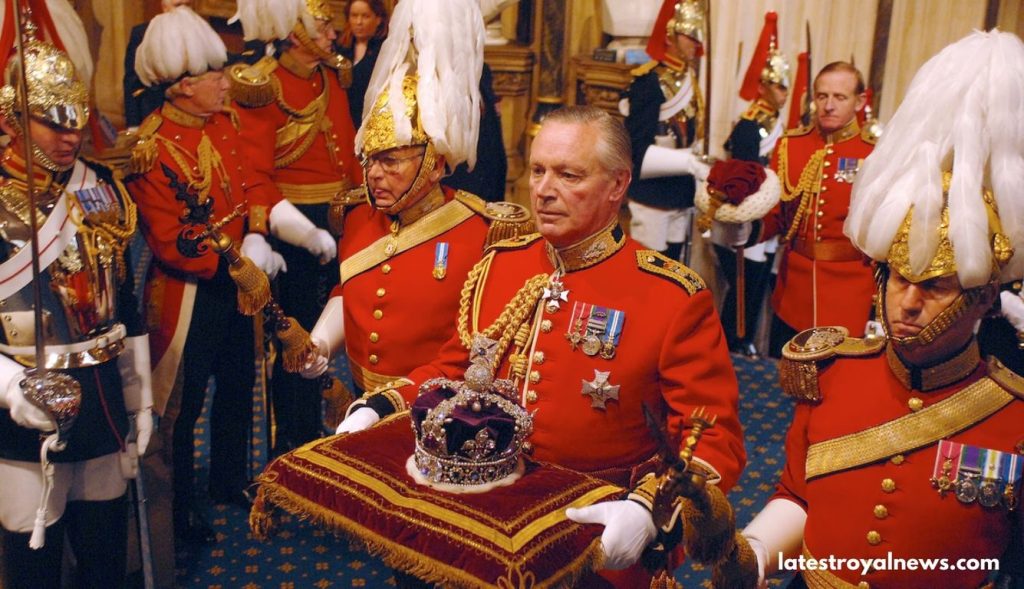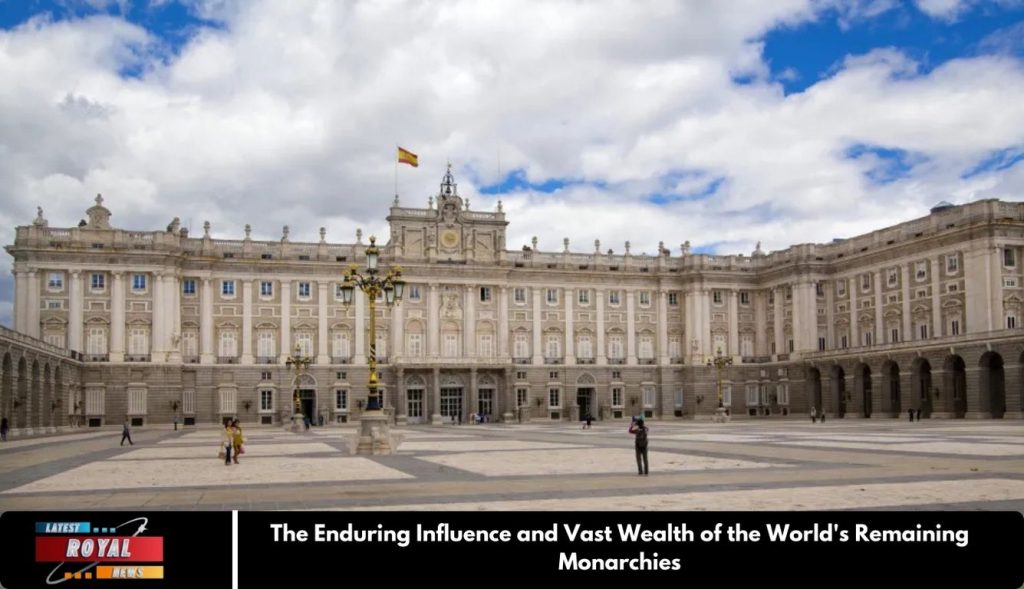Monarchies, once the pillars of political power and authority, have seen their influence wane dramatically over the past century. While the political role of royal families worldwide has become largely ceremonial, their cultural and financial significance remains profound. Despite their reduced political clout, many royal families have skillfully adapted to the changing landscape, ensuring their continued relevance in modern society.
The ongoing wealth of these royal families is staggering, with vast fortunes accumulated through centuries of dynastic rule and strategic financial management. While some monarchies have experienced decline, others, particularly in the Middle East, retain substantial control and influence. This article explores the power, wealth, and cultural impact of the remaining royals, shedding light on how they continue to shape global affairs.
The Decline of Political Power: A Global Trend
Over the last century, the political influence of monarchies has been on the decline, particularly in Europe. Once at the helm of national governance, monarchs have largely transitioned to symbolic positions. Political power was gradually relinquished as democratic ideals took hold, and revolutions, wars, and the decline of colonial empires further diminished their roles.
While monarchs once held substantial political authority, the global trend toward republics and constitutional monarchies led to the restructuring of royal families’ duties. The rise of elected governments and the principles of modern democracy forced royals into the background, reducing their role to mere figures of national identity, unity, and culture. Despite this, royal families retain significant wealth and soft power, leveraging these to stay relevant.
The Role of Royalty in the Modern World: Symbolism and Soft Power
Today, royal families, particularly in Europe, fulfill largely symbolic functions. They serve as a unifying force within their countries, embodying national identity, cultural heritage, and history. Although they no longer wield direct political control, royals are masters of “soft power.” Through global recognition, charitable efforts, and diplomatic connections, they maintain influence beyond politics.
The British monarchy, for example, while losing political authority, continues to exert soft power through global popularity. State visits, diplomatic meetings, and royal appearances serve to project British influence worldwide. Similarly, countries with royal families can leverage the symbolic power of their monarchs to strengthen ties with other nations and achieve diplomatic success.

The Scandals and Challenges Facing Modern Monarchies
Despite their enduring influence, modern monarchies are not immune to scandal and criticism. Many royal families, including those in Europe, have been at the center of public controversies, which has led to diminishing public support in some cases. Scandals involving infidelity, corruption, and abuse of power have marred the reputations of several prominent royal families, highlighting the ongoing challenges they face.
In the United Kingdom, the departure of Prince Harry and Meghan Markle from royal duties created significant media attention. Similarly, the involvement of Prince Andrew in the Jeffrey Epstein scandal severely damaged the credibility of the British royal family. These scandals have led to increased public scrutiny, highlighting the fragile nature of the monarchy’s position in the modern world.
The Enormous Wealth of the Remaining Royals
While their political power has waned, the wealth accumulated by many royal families remains vast. Some monarchies have built immense fortunes, often through strategic investments, land ownership, and maintaining control over valuable assets. The British royal family, for instance, possesses an estimated fortune ranging from $28 billion to nearly $90 billion, making them one of the wealthiest royal families globally.
A significant portion of this wealth is tied to the royal estate, including lands, properties, and art collections. In the UK, the monarchy’s connection to national wealth is also intertwined with the peerage system, which supports the royal family with financial backing from wealthy aristocratic families.
Other European royal families have amassed similar fortunes. Grand Duke Henri of Luxembourg is estimated to have a personal fortune of around $4 billion. In Spain, former King Juan Carlos’s assets, including millions in hidden wealth, have become the subject of intense public scrutiny following allegations of corruption.
The Role of Royal Families in Modern Diplomacy
One of the key ways in which royal families retain relevance in today’s world is through their involvement in diplomacy. Royal family members often serve as unofficial ambassadors for their countries, fostering international relations through state visits and royal engagements. These visits can serve to strengthen ties between nations and facilitate important political and economic agreements.
Royal families can also act as neutral figures in political disputes. In countries like Spain, Belgium, and the UK, monarchs often engage in public diplomacy, using their position to smooth over political tensions and promote unity. For example, the British royal family’s involvement in securing agreements with other royal families worldwide has been instrumental in enhancing the UK’s soft power.
The Continued Relevance of Royalty in Asia and the Middle East
While European monarchies have largely become ceremonial, royal families in Asia and the Middle East maintain varying degrees of power. In Southeast Asia, monarchs such as the King of Thailand and the Sultan of Brunei possess enormous personal wealth and significant influence over their countries. The Sultan of Brunei, for example, is one of the wealthiest monarchs in the world, with an estimated fortune of $288 billion.
In Japan, the monarchy remains symbolic but has significant cultural importance. Despite having little political power, the Japanese imperial family is one of the oldest and most revered in the world. In Malaysia and Cambodia, monarchs hold sway in cultural and religious matters, providing a stabilizing force within their countries.
The Gulf Monarchies: Absolute Power in the Modern World
Among the world’s remaining royal families, the monarchies of the Arabian Peninsula stand out for their ability to retain absolute power. In countries such as Saudi Arabia, the United Arab Emirates (UAE), Qatar, and Bahrain, royal families exert full control over their nations, with no room for political opposition. These monarchies are deeply entwined with the political, economic, and religious landscapes of their countries, with the ruling families maintaining authority over law, media, and government.
The wealth of these monarchies is staggering. The Saudi royal family, with an estimated net worth ranging from $100 billion to $1.4 trillion, enjoys control over vast oil reserves, making them one of the wealthiest families in the world. The Al Nahyan family of the UAE is also considered one of the richest, with a combined fortune estimated at over $300 billion.
These monarchies have benefited from their control over vast oil wealth, using this resource to build influential economies and exert global influence. The rulers of these countries also maintain tight control over the media, which helps preserve their power and control over public perception.
You may also like:
Royal Family Member Injured Ahead of Pre-Christmas Lunch at Buckingham Palace
Prince William’s Modern Leadership: Transforming the Historic Duchy of Cornwall
The Political and Cultural Importance of Middle Eastern Monarchies
The Middle East has long been home to monarchies with significant power. The collapse of the Ottoman Empire after World War I allowed many Arab monarchs to consolidate their power, establishing absolute monarchies that have endured to the present day. While these monarchies are often criticized for their authoritarian control, they continue to enjoy widespread support, particularly in the younger generation.
In countries such as Saudi Arabia and Qatar, the royal families are seen as custodians of both national identity and religious authority, particularly in their roles as guardians of Islamic holy sites. This religious significance reinforces their legitimacy and enhances their ability to maintain control over their populations.
Challenges and Opportunities for Monarchies Worldwide
While royal families continue to thrive in certain regions, their positions are not without challenges. In the Middle East, internal power struggles and rivalries within royal families have occasionally spilled into the public eye, leading to instability. In Europe, royal families face the ongoing challenge of maintaining public support amid rising republican sentiments and scrutiny over their wealth and spending.
However, there are opportunities for royals to adapt and thrive in the modern world. Many royal families have embraced charitable work and humanitarian efforts to improve their public image and demonstrate their relevance in the 21st century. By focusing on causes such as education, health, and environmental issues, they can maintain their influence while distancing themselves from the political controversies that often surround them.
Frequently Asked Questions
What is the current role of modern monarchies?
Modern monarchies have largely become ceremonial, with their political influence reduced to symbolic functions. They often serve as cultural icons and act as figureheads for national unity.
Which royal families still hold political power?
While most royal families are ceremonial, some, such as those in Saudi Arabia, Brunei, and Eswatini, retain significant political control.
How wealthy are royal families today?
Royal families, especially in Europe and the Middle East, maintain enormous wealth, often ranging from hundreds of millions to billions of dollars, largely from land holdings, investments, and assets.
Do royal families pay taxes?
In many countries, royal families do not pay taxes on their personal wealth, though some contribute to public funds through royal allowances or by supporting charitable causes.
Why are royal families so rich?
The wealth of royal families is derived from centuries of land ownership, investments, and historical privileges, as well as ongoing income from various estates and businesses.
How do royal families remain relevant today?
Despite their reduced political roles, royal families maintain relevance through public appearances, charitable work, media visibility, and cultivating soft power.
What challenges do royal families face today?
Royal families face challenges such as scandals, public scrutiny, financial transparency concerns, and debates over their continued existence in modern democracies.
Which royal family is the wealthiest?
The Thai royal family is considered the wealthiest, with an estimated net worth of $43 billion, largely due to investments and real estate holdings.
Conclusion
The power and wealth of royal families may have diminished, but they are by no means irrelevant. While their political authority has waned, they continue to wield significant influence through soft power, wealth, and cultural significance. As global symbols of tradition, unity, and national pride, many royal families have successfully adapted to the modern world, finding new ways to stay relevant in a rapidly changing geopolitical landscape.
The future of royalty, however, remains uncertain. While some monarchies continue to enjoy the support of their people, others face challenges from growing republican movements and scrutiny over their wealth and personal lives. Yet, through their vast fortunes, cultural significance, and diplomatic power, royal families are likely to remain an enduring part of global history and politics for many years to come.


